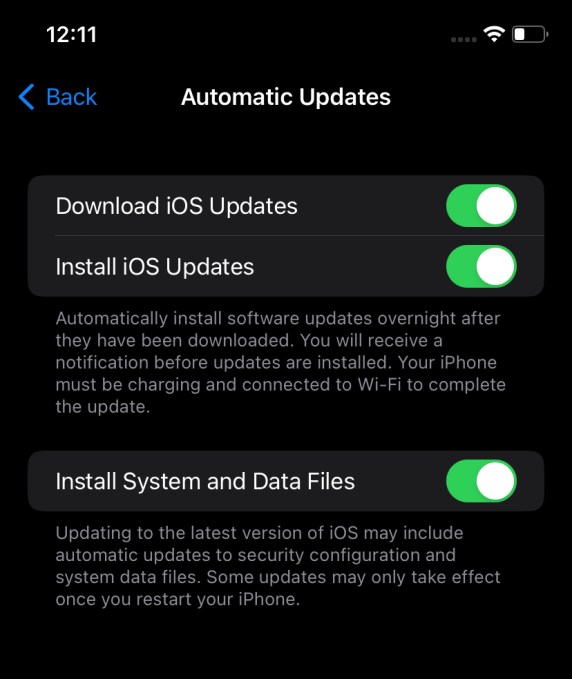Security is a moving target, and Apple’s latest security release aims to respond better to that: to keep iPhones and Macs up to date with new security fixes, it’s launching Rapid Security Response, which will apply security updates to devices on the fly, outside of version updates for iOS.
The feature was announced at its Worldwide Developer Conference (WWDC), and it appears to already be live in the developer beta for iOS 16 (Meaning: it’s likely to be rolled out with the general release of iOS 16, too).
The feature was only briefly mentioned in yesterday’s keynote, but in the developer version of iOS 16, the new toggle is appearing already in the automatic updates menu under “Install System and Data Files.” It suggests that Apple might push automatic security patches by default.

A new software update toggle in the iOS 16 developer beta enables automatic security updates. Image Credits: Apple
The description of the feature suggests that you might not need to reboot your phone for some updates to take effect.
Rapid Security Response is not limited to iOS. Apple’s bringing this feature to macOS Ventura as well, according to a feature preview page.
“This isn’t a standard software update. These improvements can be applied automatically between normal updates — without a restart,” the company said on the blog.
Until now, users have had to wait for Apple to release critical security updates with minor version releases. With the new rapid security patch system, the firm can push important bug fixes without having to release a separate software update.
This feature will roll out with iOS 16, so if Apple needs to push a security patch before that, it’ll have to ship a version update. Once the feature is available for everyone, it will also eliminate the need for people to be aware of a potential bug to fix it. Apple can silently issue an update that would be effective for people who don’t update their phones with all minor releases.
Google has adopted a similar approach with the Google Play system updates — which are separate from OEM version updates — to protect Android devices from malware and software vulnerabilities.
Now, Apple’s new feature prepares it to secure iOS and macOS devices against unexpected cybersecurity attacks and vulnerabilities more proactively, too. It can issue patches as quickly as possible without needing to rely on users to download and install them, making them more effective overall.
Apple also introduced new security features across iOS including Safety Check to remove data access from abusers, a default lock for hidden and recently deleted photos, and Face ID support for landscape mode.

